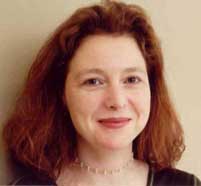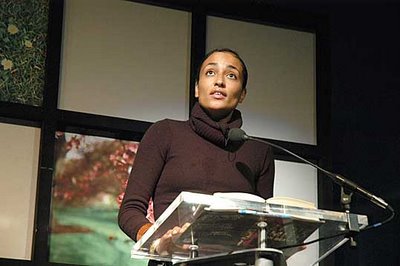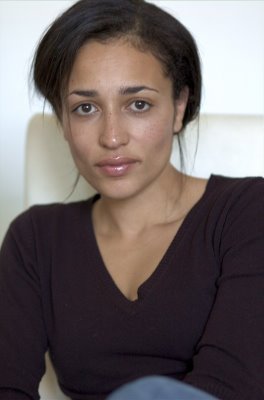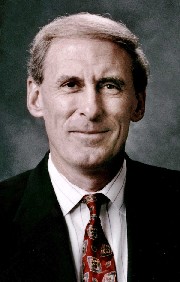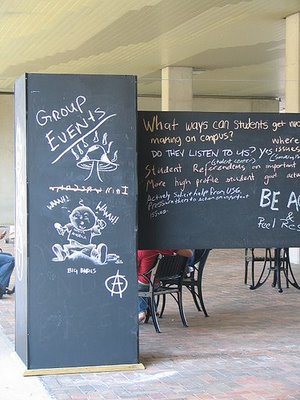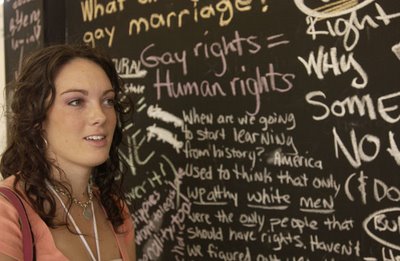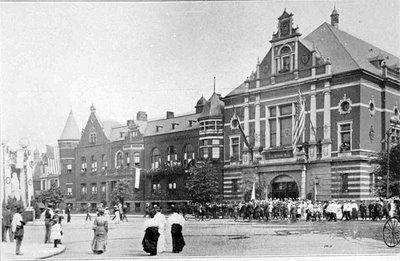So what do we have in store for My Daily Constitution - Indy? Take a look at the schedule below. You can click on the links to go to the IndyBuzz blurb for each event. At the bottom of the blurb will be a link to take you back to this schedule for My Daily Constitution. And go to the excellent
http://www.mydailyconstitution.org/ page for more information.
Sunday, September 17
2:00 PM - 5:30 PM
Opening event: “Reading the Constitution” A public reading of the Constitution, with Hoosier Constitutional scholars and lawyers answering your questions live, in real time!
Where: The Atrium, Indiana State House Building
Monday, September 18 12:15 PM – 1:00 PM
Susan Erickson (IUPUI)
Constitution Café: “What does the 'liberal' in 'liberal arts' mean? The difference between constitutional freedom of speech and academic freedom of speech” The First Amendment grants the right to proclaim falsities as truth and to denounce opponents as evil. Within the academic community, different parameters apply. Can these very different notions of “free speech” be reconciled?
Where: Democracy Plaza, IUPUI campus breezeway adjacent to University Library
Monday, September 18 6:30 PM - 8:30 PM
Pierre Atlas (Marian) & Charlie Wiles (Peace & Learning Center)
Constitution Café: "Who are ‘We the People’ Anyway? Personhood, Citizenship and the U.S. Constitution"Traditionally Americans have regarded themselves as a "nation of immigrants" grounded in an increasingly inclusive, "civic" identity consistent with the ideal of pluralism. As America becomes demographically more Latino and Asian, and with Islam as the country's fastest growing religion, will we still advocate inclusiveness and pluralism as our national ideal?
Where: The Auditorium of the Old Centrum: 1201 North Central Ave. Indianapolis, Indiana 46202
Tuesday, September 19 12:15 PM – 1:00 PM
Art Farnsley (American Values Alliance)
Constitution Café: “Hate Speech, Pornography, Prayer before Football Games: What are Legitimate Limits to Free Speech?”
Everyone knows you can't yell "fire" in a crowded theater, but are there other limits to free speech? When does free expression cross the line into doing actual harm to others?
Where: Democracy Plaza, IUPUI campus breezeway adjacent to University Library
Tuesday, September 19 7:00 PM – 9:00 PM
Claudia Peña Porretti (ACLU-Indiana)
Constitution Café: “Can we have national security without sacrificing our core American values?” Shortly after 9/11 the U.S. Congress passed the first USA PATRIOT ACT. Fearing further terrorist attacks after 9/11, a large part of the American public supported giving up freedoms in exchange for greater security. How can we tell if the government has gone too far in its search for security, or if it has not gone far enough? What can citizens do to maintain the balance between security and individual rights?
Where: The Athenaeum Foundation: 401 East Michigan Indianapolis 46204
Wednesday, September 20 12:15 PM – 1:00 PM
Ed DeLaney
Constitution Café: “International Agreements in War Time: Do U.S. Signatures on a Treaty Mean Anything?” The War in Iraq and the apparently broader series of events called the War on Terror challenge those Americans who believe in international treaties. Can the President dismiss the relevance of the Geneva Conventions? Will the Congress let him? What will the consequences be in terms of International Law and our chances of conducting a successful foreign policy?
Where: Democracy Plaza, IUPUI campus breezeway adjacent to University Library
Wednesday, September 20 7:00 PM – 9:00 PM
Constitution Debate: “The Arsenal Tech High School Constitution Team” Two groups of six teens from the award-winning Arsenal Tech High School Constitution Team will debate the merits of a constitutional government vs. an autocratic or dictatorial government. Lawyers act as judges, and the evening finale opens the floor for questions from the audience.
Where: The Spades Park Library Auditorium: 1801 Nowland Avenue Indianapolis 46201
Thursday, September 21 12:00 PM – 1:00 PM
Abdul Hakim Shabazz (1430) & Jeffrey Stake (IU Law)
Constitution Café: “Taking private property for public use: When and how should the power of eminent domain be employed?” Historically, there are many examples of governments seizing private property for the “public good.” Today “public good” has been broadened to include private redevelopment, confusing the issue of when and how to apply eminent domain. Can public good be defined to still respect individual rights?
Where: Shapiro's Downtown: 808 S Meridian St Indianapolis 46225
Thursday, September 21 7:00 PM – 9:00 PM
Andy Jacobs & John Clark
Constitution Café: “The War Powers Clause and the U.S. Constitution Today” The Constitution gives to Congress the exclusive right to declare war, while designating the President commander-in-chief of the military. How realistic is this division of power? In waging war, what should be the proper balance between Congress and the President? What should be the balance between the Constitution and security in an age of terrorism?
Where: The Indiana Historical Society: 450 West Ohio St. Indianapolis, Indiana 46202
Friday, September 22 12:00 PM – 1:00 PM
Sheila Kennedy (SPEA) & Andrea Price (Public Access of Indianapolis)
Constitution Café: “Who's First Amendment? Reclaiming the Public Interest in Our Media” It sure isn’t your father's media: five mega-corporations own most of the nation's newspapers and broadcasters, while bloggers and internet sites proliferate. What is news, what is “infotainment”? Where do Americans get the information required for informed voting and self-government? What kinds of information are protected by the First Amendment, and why?
Where: Indiana Repertory Theatre: 140 West Washington Street Indianapolis 46204
Friday, September 22 8:00 PM – 10:00 PM
Ellen Anderson (IUPUI) & Gary Welsh
Constitution Café: “Liberty, Equality, and LGBT Rights” What do “liberty” and “equality” mean in Indiana and the United States today? Do these words include us and our experiences as LGBT people? This discussion will use the real-life legal experiences of LGBT people in matters ranging from marriage to adoption to employment to explore how we "fit" into the Constitution.
Where: Outward Bound Books: 625 North Street Indianapolis 46202
Saturday, September 23 10:00 AM – 12:00 PM
María Pabón López (IU-I Law) and Teo Cain (local organizer)
Constitution Café: (English/Spanish) “Do U.S. Constitutional Rights Extend to Non Citizens?” What rights do non-citizens, documented and otherwise, have for free speech, the workplace, voting, free association, equal protection, criminal law, and other aspects of our Constitutional democracy?
Where: St. Mary’s Catholic Church: 317 North New Jersey Street Indianapolis 46204
Saturday, September 23 1:00 PM – 2:00 PM
Organization for Neighborhood Empowerment
Bus Tour: “Case Study: Air Quality Indianapolis -- A tour of an East Side Neighborhood” This bus tour will visit the neighborhood surrounding the Citizens Gas & Coke manufacturing plant on the east side of Indianapolis.
Where: Family Center, Christian Park: 4200 English Avenue Indianapolis 46201
Saturday, September 23 2:00 PM – 4:00 PM
Michael Sutherlin (HEC) & Dick van Frank
Constitution Café: “Public Participation in Environmental Regulation: Theory vs. Reality” State environmental agencies are charged with the protection of all citizens of the state. In reality, groups with the greatest resources exert a disproportionate influence on the enactment of environmental regulations. We have the studies and the enforcement actions, so what is preventing advances in creating a cleaner, more healthy Indiana? Could “business as usual” be the problem?
Where: Family Center, Christian Park: 4200 English Avenue Indianapolis 46201
Saturday, September 23 5:00 PM – 7:00 PM
Jacquelyn Bowie-Seuss (ACLU-IN) & Warren Watson (J Ideas)
Constitution Café: “Constitution Who? Constitutional issues about Students and Young People.” What are constitutional rights for students and young people? Does the Constitution protect freedom of expression of student newspapers, high school plays and blogging in libraries? Are all school searches and seizures constitutional?
Where: Glendale Library Auditorium: 6101 North Keystone Avenue 46220
Saturday, September 23 7:00 PM – 9:00 PM
Hip Hop Poetry Slam + Open Mic: “Constitution Who?” Featuring DJ Dicky Fox Where: Glendale Mall First Floor Indoor Court: North Keystone Avenue 46220
Sunday, September 24
My Daily Constitution Film Festival 11:00 AM
Control Room — A documentary about the world’s perception of America’s war with Iraq, with an emphasis on Al Jazeera's coverage
1:00 PM
Persons of Interest — A documentary about the detention of Muslim-Americans in the wake of 9/11
2:30 PM
Our Brand Is Crisis—Documentary about US political pros designing an election campaign in Bolivia.
Where: Indianapolis Museum of Art: 4000 Michigan Road Indianapolis 46208
Sunday, September 24 4:30 PM - 6:30 PM
Rod Bohannan (Indiana Legal Services) & Amos Brown (WTLC-AM)
Constitutional Café: “The Right to Vote and American Constitutional Democracy” When it comes to voting, how are our state and the rest of the country progressing? In this concluding discussion we will examine the history of voting in Indiana, advances, set- backs, and what can be done about this fundamental practice of our democracy.
Where: Bethel African Methodist Episcopal Church: 414 West Vermont Street, Indianapolis 46202
Return to
Navigating IndyBuzz in September
